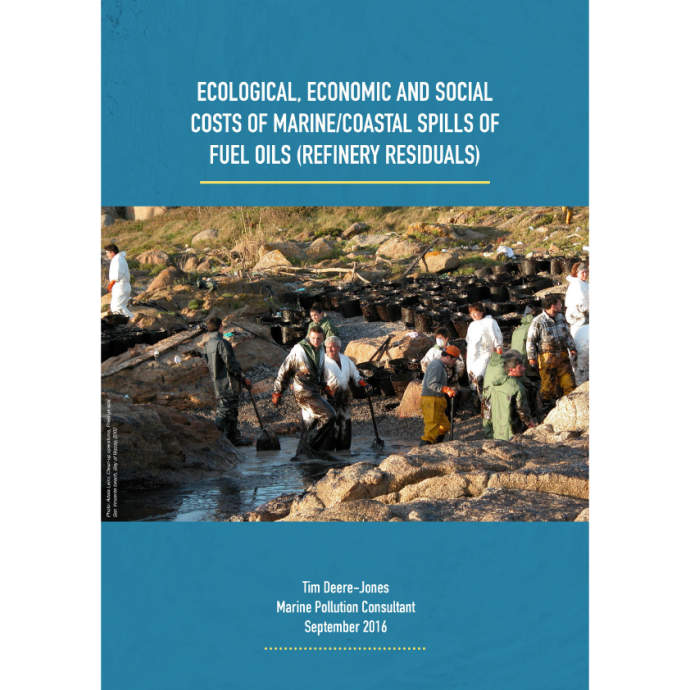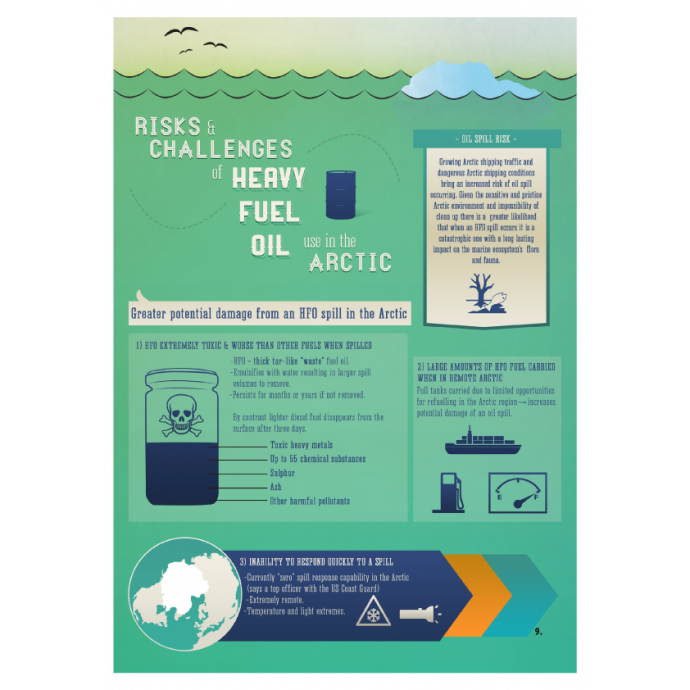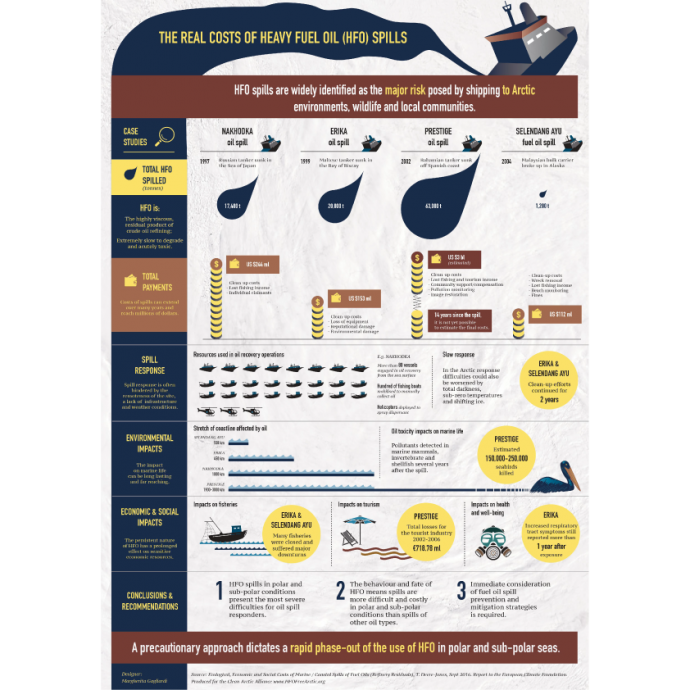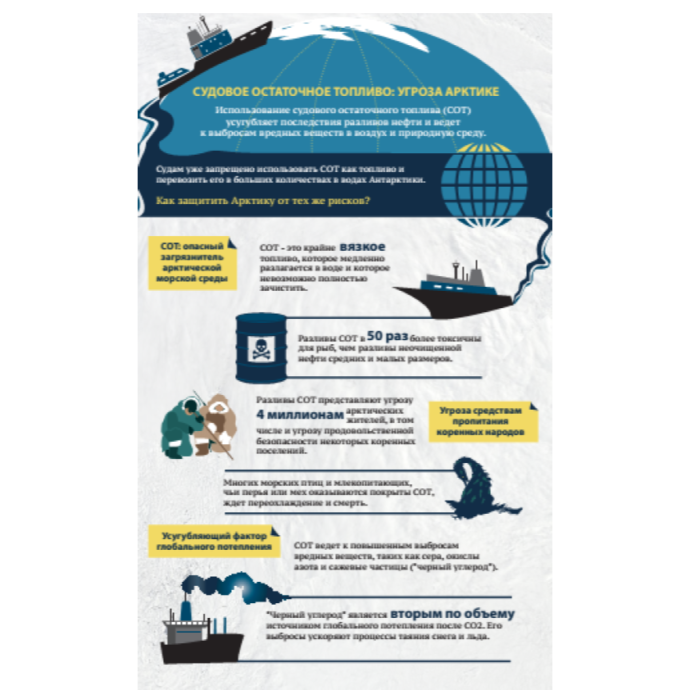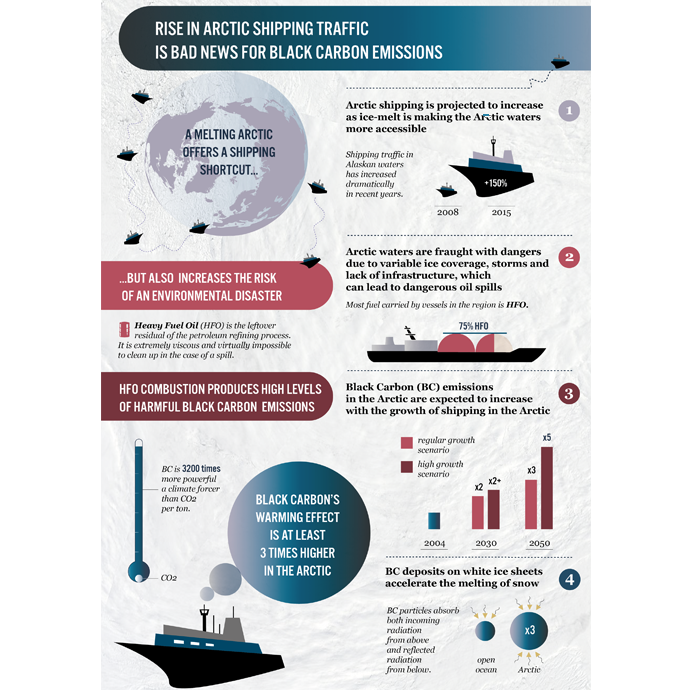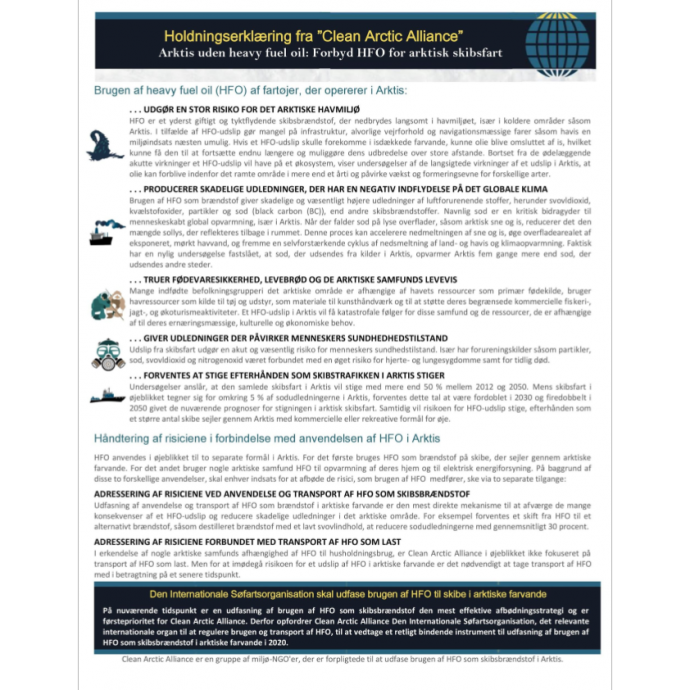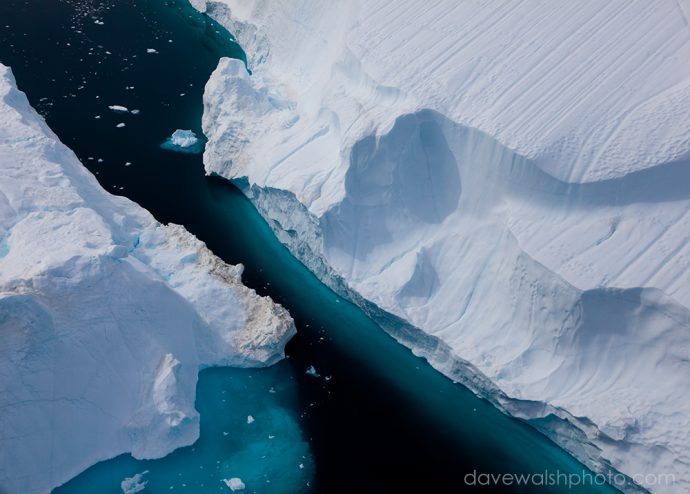Ecological, economic and social costs of marine/coastal spills of fuel oils (refinery residuals)
A report by Tim Deere-Jones
The growing demands for shorter, quicker and less expensive sea routes around the northern hemisphere coupled with Arctic warming is generating a significant increase in vessel traffic through Arctic waters. This report offers a brief review of the behaviour and fate of both heavy fuel oil (HFO) and medium fuel oil (MFO) spills in polar, sub-polar and similar cold water marine environments. It also offers a brief review of the impacts of such spills and the relative «costing» of some of the impact parameters of such spills.

